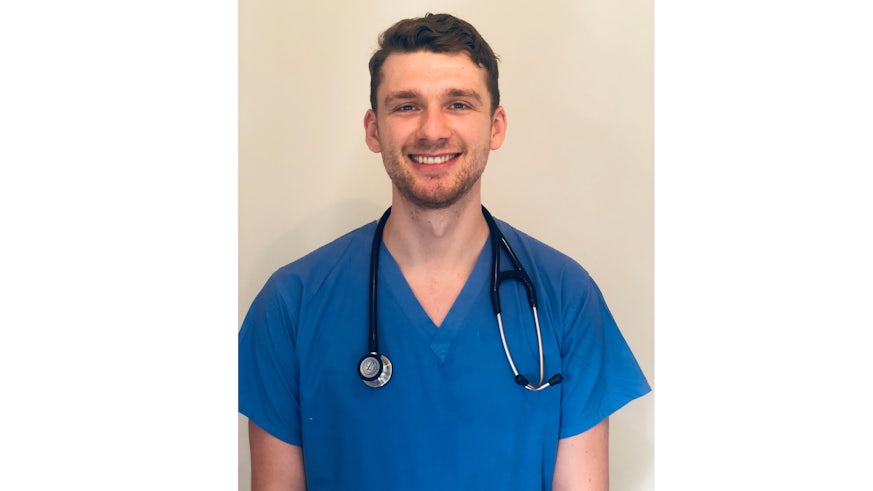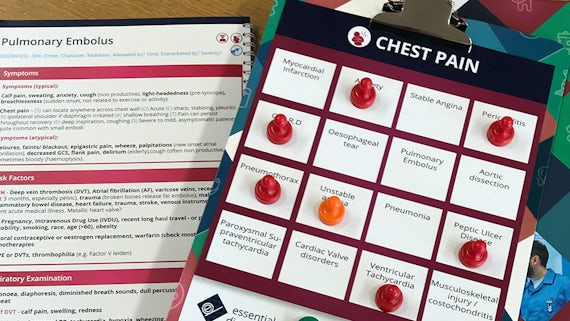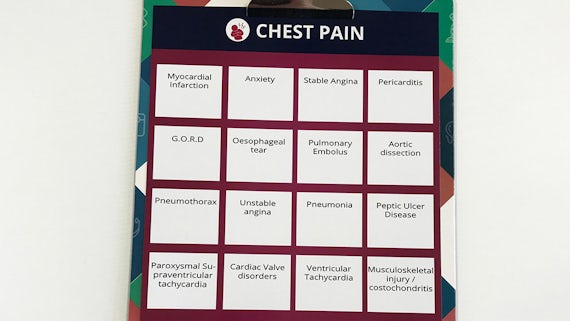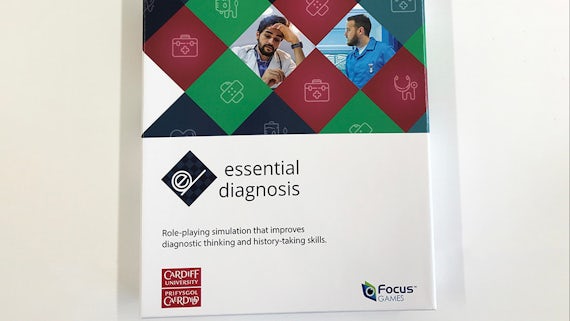Medical student designs ‘Essential Diagnosis’ game
24 November 2020

A former Cardiff University medical student has created a game that helps future medics sharpen their diagnostic thinking and history taking skills.
‘Essential Diagnosis’ was developed by hospital doctor Chris Baker in his final year at the University’s School of Medicine.
The role-play board game, which simulates a conversation between a clinician and a patient, is being produced commercially by Focus Games, creators of 'serious' games that change thinking and behaviour.
Chris, 26, who is originally from Kent and now works at Tunbridge Wells Hospital, said: “I came up with the idea for Essential Diagnosis after attending an informative communication skills workshop at Cardiff University. It inspired me to create an interactive learning opportunity for myself and other medics to practice for our final exams and future careers.”
“After developing a prototype, I tested the game on fellow students who responded positively. They felt it gave them a different perspective on the diagnostic process, generated important discussions and helped them understand the value of the questions needed to reach a diagnosis. Students showed measurable improvements in diagnostic thinking skills after engaging with the game for 60 minutes.”
Dr Baker took his idea to the South East Wales Academic Health Science Partnership (SEWAHSP), who provided funding and support to get the game off the ground.
Dr Corinne Squire, SEWAHSP Manager, said: “We could instantly see the potential in Chris’s idea. He had come up with a fun and interactive concept to help students learn how to ask the right questions to arrive at a definite diagnosis for conditions with similar symptoms and backed this up with accurate and accessible clinical information. We introduced him to Focus Games who helped refine and develop Chris' design to produce the eventual game. I hope we will see this being widely used by medical schools in the UK and internationally.
Aimed junior doctors and Advanced Nurse Practitioners, the first edition of Essential Diagnosis deals with three key symptoms, supported by a wide range of differentials: breathlessness, chest pain and loss of consciousness.
Medical students have welcomed the game. School of Medicine graduate Dr Chay Markham said: “Essential Diagnosis provides a comfortable and easily accessible opportunity to practice history taking for final exams.”
Joseph Pickett, a second year medical student at Southampton University, added: “Playing the game with friends provided a sociable way to learn both practical and theoretical medicine.”
The Clinical Innovation Partnership forged between Cardiff University and Cardiff and Vale University Health Board in 2016 also backed the board game.
Professor Ian Weeks OBE, Pro Vice-Chancellor, College of Biomedical and Life Sciences and Dean of Clinical Innovation at Cardiff said: “It’s very timely that the game is being brought to market during the Covid-19 pandemic as it can play an important role in student learning. Essential Diagnosis was initially supported by the Clinical Innovation Multidisciplinary Team. Several members who are medically trained appreciate that developing diagnostic and history taking skills can be a struggle. Face to face conversations with patients and simulation workshops usually help, but some of these opportunities are not available to students during the pandemic.”
Share this story
Learn how our cutting-edge research, technology transfer, business development and student enterprise drive our vision.






